The Role and Benefits of Pallet Wrappers
Date Posted:12 July 2024
Pallet wrappers, also known as stretch wrapping machines, provide a systematic and efficient method for stabilizing palletized loads, protecting them from damage, and optimizing storage and shipping processes.
In the realm of logistics and distribution, pallet wrapping plays a pivotal role in ensuring the safe and secure transportation of goods. Pallet wrappers, also known as stretch wrapping machines, provide a systematic and efficient method for stabilizing palletized loads, protecting them from damage, and optimizing storage and shipping processes. This article delves into the features, advantages, and applications of pallet wrappers in modern supply chain management.
Ensuring Load Stability
Pallet wrappers are designed to apply stretch film around palletized loads, creating a tight and uniform wrap that secures the contents in place. By stabilizing the load and preventing shifting or movement during transit, pallet wrappers minimize the risk of product damage, toppled pallets, and costly freight claims. This is especially crucial for fragile or irregularly shaped items that require extra protection during handling and transportation.
Versatility and Adaptability
Turntable Wrappers: Turntable wrappers feature a rotating turntable platform where the palletized load is placed. As the turntable spins, the stretch film is dispensed and wrapped around the load, ensuring complete coverage from all angles. Turntable wrappers are suitable for low to medium volume applications and are available in semi-automatic or fully automatic models.
Rotary Arm Wrappers: Rotary arm wrappers utilize a rotating arm that moves around the stationary pallet, wrapping the stretch film around the load. Rotary arm wrappers are ideal for high-speed applications and oversized loads that cannot be accommodated on a turntable. These machines offer rapid wrapping speeds and precise control over wrapping parameters.
Horizontal Wrappers: Horizontal wrappers, also known as orbital wrappers, apply stretch film horizontally around the palletized load, rather than rotating the pallet itself. This wrapping method is suitable for tall or unstable loads that may tip over on a turntable or rotary arm wrapper. Horizontal wrappers are often used in conjunction with conveyor systems for continuous wrapping of high-volume loads.
Improving Efficiency and Productivity
Increased Throughput: Pallet wrappers automate the wrapping process, allowing operators to wrap multiple pallets quickly and consistently. By reducing manual labor and increasing wrapping speeds, pallet wrappers improve throughput and productivity in shipping and receiving operations.
Reduced Material Costs: Pallet wrappers optimize stretch film usage by applying the right amount of film to each palletized load. This minimizes film waste and reduces material costs associated with packaging. Additionally, stretch film is typically less expensive than alternative packaging materials such as shrink wrap or strapping.
Enhanced Load Security: Pallet wrappers ensure that palletized loads are securely wrapped and protected during transit, reducing the risk of product damage or loss. By maintaining load stability and integrity, pallet wrappers help businesses uphold quality standards and customer satisfaction.
Environmental Sustainability
Pallet wrappers contribute to environmental sustainability by promoting resource efficiency and waste reduction. Stretch film is recyclable and can be reused or repurposed after wrapping, minimizing the environmental impact of packaging materials. Additionally, pallet wrappers optimize film usage and reduce the need for additional packaging materials, further reducing waste and carbon emissions in the supply chain.
Applications Across Industries
Warehousing and Distribution: In warehouses and distribution centers, pallet wrappers are used to prepare palletized loads for shipping and storage. Pallet wrappers streamline order fulfillment processes and ensure that goods arrive at their destination in optimal condition.
Manufacturing: In manufacturing facilities, pallet wrappers are employed to secure finished products or components onto pallets for shipping to customers or assembly plants. Pallet wrappers protect delicate or high-value items from damage during handling and transportation.
Retail: In retail settings such as supermarkets and big-box stores, pallet wrappers are used to wrap bulk merchandise for display or storage. Pallet wrappers help retailers maintain inventory integrity and presentation standards while optimizing shelf space and storage efficiency.


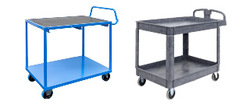
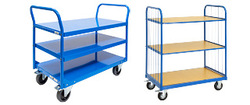
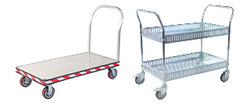
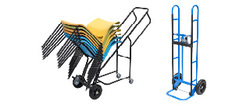
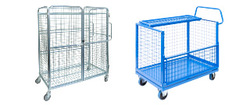
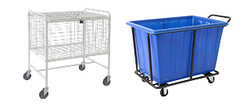
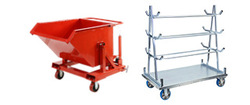
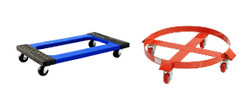
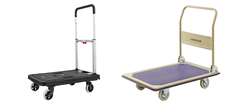
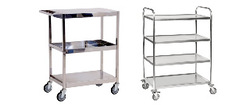
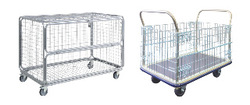
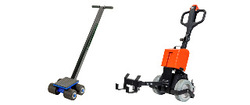
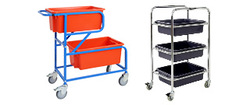
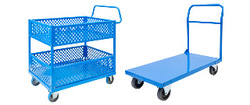
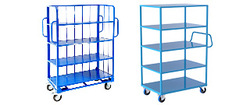
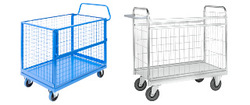
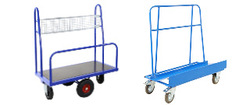
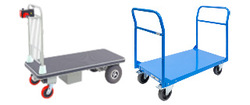
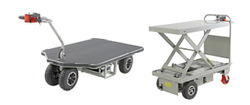
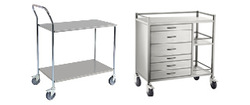
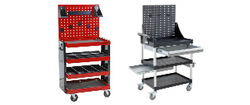
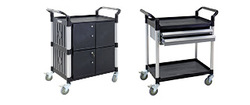
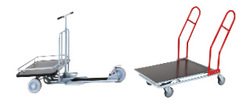
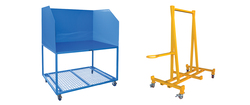



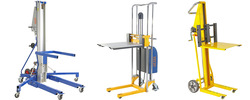



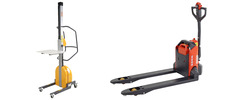
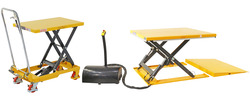
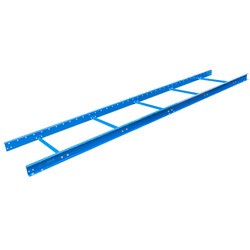
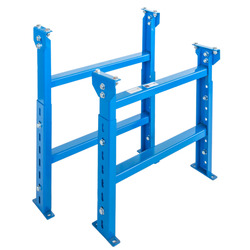
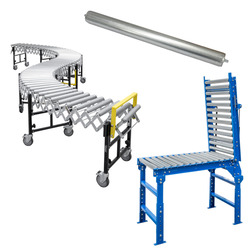
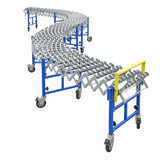



















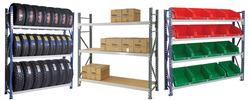
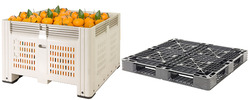
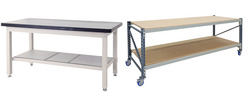
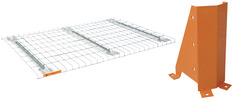
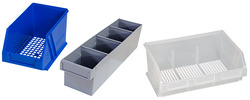

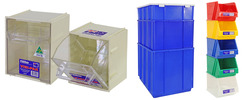

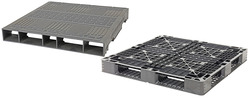

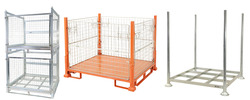
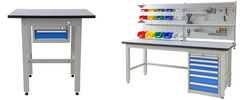
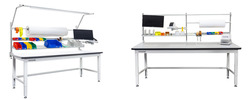


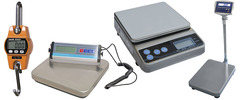



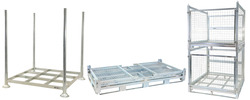
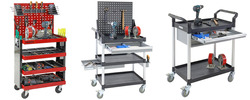
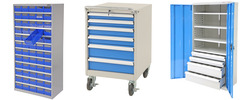

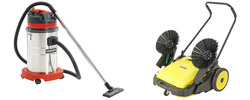


































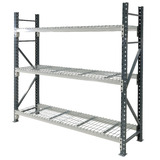


















 Trolleys / Hand Trucks
Trolleys / Hand Trucks 2 Tier Trolleys
2 Tier Trolleys 3 Tier Trolleys
3 Tier Trolleys Aluminium Trolleys
Aluminium Trolleys Appliance & Hand Trucks
Appliance & Hand Trucks Cage Trolleys
Cage Trolleys Cleaning Carts & Trolleys
Cleaning Carts & Trolleys Construction Trolleys
Construction Trolleys Dollies
Dollies Foldable Trolleys
Foldable Trolleys Hospital Trolleys
Hospital Trolleys Laundry/Linen Trolleys
Laundry/Linen Trolleys Load Skates & Tow Tugs
Load Skates & Tow Tugs Mail / Office Trolleys
Mail / Office Trolleys Multi Purpose Trolleys
Multi Purpose Trolleys Multi-Tier Shelf Trolleys
Multi-Tier Shelf Trolleys Order Picking Trolleys
Order Picking Trolleys Panel Cart Trolleys
Panel Cart Trolleys Platform Trolleys
Platform Trolleys Powered Trolleys
Powered Trolleys Stainless Steel Trolleys
Stainless Steel Trolleys Tool Trolleys
Tool Trolleys Utility Carts
Utility Carts Warehouse Trolleys
Warehouse Trolleys Custom Trolleys
Custom Trolleys Lifting Equipment
Lifting Equipment Forklift Attachments
Forklift Attachments Jib Attachments
Jib Attachments Lifting Hoists & Pallet Hooks
Lifting Hoists & Pallet Hooks Manual Stackers & Lifters
Manual Stackers & Lifters Pallet Jacks
Pallet Jacks Pallet Lifters
Pallet Lifters Pallet Rotators & Dispenser
Pallet Rotators & Dispenser Powered Pallet Trucks & Electric Lifters
Powered Pallet Trucks & Electric Lifters Scissor Lift Trolleys and Tables
Scissor Lift Trolleys and Tables Conveyor Equipment
Conveyor Equipment Conveyor Frames
Conveyor Frames Conveyor Stands
Conveyor Stands Roller Conveyors
Roller Conveyors Skate Wheel Conveyors
Skate Wheel Conveyors Access Equipment
Access Equipment Container & Yard Ramps
Container & Yard Ramps Step Stools & Ladders
Step Stools & Ladders Work Platforms & Crane Cages
Work Platforms & Crane Cages Drum Handling
Drum Handling Drum Storage & Bunding
Drum Storage & Bunding Drum Trolleys & Lifters
Drum Trolleys & Lifters Forklift Drum Handling
Forklift Drum Handling Containment & Spillage
Containment & Spillage Aerosol Cans Storage Cages
Aerosol Cans Storage Cages Bunded Pallets & Storage
Bunded Pallets & Storage Corrosive Goods Storage Cabinets
Corrosive Goods Storage Cabinets Flammable Liquid Cabinets
Flammable Liquid Cabinets Forklift Gas Storage Cages
Forklift Gas Storage Cages Gas Cylinder Storage
Gas Cylinder Storage Site Storage
Site Storage Spill Kits
Spill Kits Stillage Cages
Stillage Cages Waste Handling
Waste Handling Bin Lifters & Tippers
Bin Lifters & Tippers Plastic Waste Bins and Carts
Plastic Waste Bins and Carts Steel Waste and Tipping Bins
Steel Waste and Tipping Bins Storage Equipment
Storage Equipment Heavy Duty Cabinets & Benches
Heavy Duty Cabinets & Benches Heavy Duty Shelving
Heavy Duty Shelving Mega Bins & Pallets
Mega Bins & Pallets Packing Benches
Packing Benches Pallet Racking Accessories
Pallet Racking Accessories Parts Trays & Stor-Pak Bins
Parts Trays & Stor-Pak Bins Pegboard & Louvre Panels
Pegboard & Louvre Panels Plastic Bins
Plastic Bins Plastic Handling Solutions Bins
Plastic Handling Solutions Bins Plastic Pallets
Plastic Pallets Stack & Nest Bins
Stack & Nest Bins Storage Cages
Storage Cages Workplace Equipment
Workplace Equipment Workbenches
Workbenches Modular Workbenches
Modular Workbenches Electric Height-Adjustable Workbenches
Electric Height-Adjustable Workbenches Floor Matting
Floor Matting Industrial Weighing Scales
Industrial Weighing Scales Pallet Wrapping & Packaging Machinery
Pallet Wrapping & Packaging Machinery Ramps
Ramps Stationery Cupboards
Stationery Cupboards Storage and Stillage Cages
Storage and Stillage Cages Tool Trolleys
Tool Trolleys Tooling Cabinets
Tooling Cabinets Wheelie Bins
Wheelie Bins Workshop Equipment
Workshop Equipment Safety Equipment
Safety Equipment Gloves and PPE
Gloves and PPE Pallet Rack Post Protectors
Pallet Rack Post Protectors Safety Barriers & Bollards
Safety Barriers & Bollards Safety Knives & Cutters
Safety Knives & Cutters Signs and Traffic Supplies
Signs and Traffic Supplies Tool & First Aid Boxes
Tool & First Aid Boxes Construction Equipment
Construction Equipment Concrete Equipment
Concrete Equipment General Site Equipment
General Site Equipment Lifting Equipment
Lifting Equipment Site Storage
Site Storage Waste
Waste  MHA's Specials
MHA's Specials











